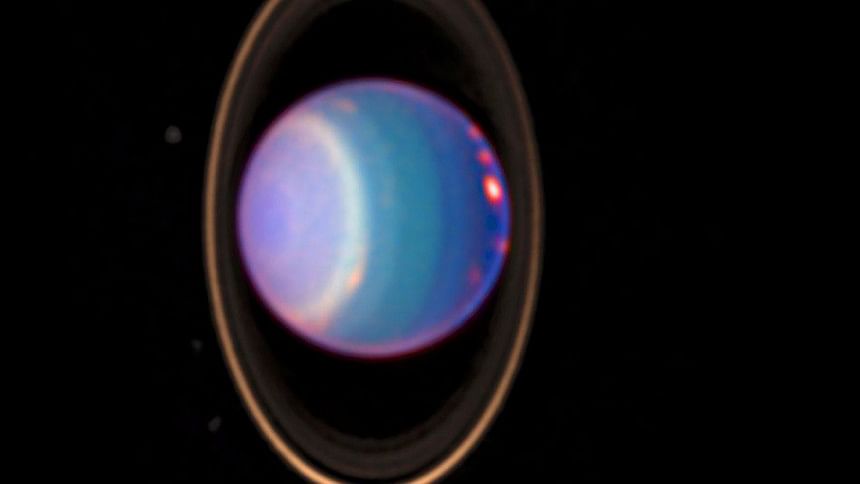Scientists suggest Nasa to make Uranus mission a priority

The US space agency Nasa should prioritise a mission to Uranus, according to an influential group of scientists.
The "ice giant" is our Solar System's seventh planet, orbiting the Sun 19 times further than the Earth.
It's only been visited once previously, by the Voyager-2 spacecraft in 1986 during a short pass.
Researchers believe that studying Uranus in depth will help them better comprehend the many similar-sized objects that have recently been identified around other stars, BBC reports.
The recommendation came in a document from the National Academies of Sciences, Engineering, and Medicine in the United States (NAS).
It's known as a "decadal survey", and it's a compilation of what the American scientific community considers to be the most pressing planetary science questions right now, as well as the space missions needed to answer them.
Nasa has mostly followed past National Academies assessments' recommendations.
The most recent planetary decadal survey, published in 2011, identified two top priorities: a rock-collection mission to Mars, which evolved into the Perseverance rover, which is now on the Red Planet's surface, and a mission to Jupiter and its moon Europa, which is currently being prepared for launch in 2024. The Europa Clipper is the name of the spacecraft.
Since the late-1980s Voyager-2 contacts, experts studying the outer planets of our Solar System have been lobbying for a return mission to either Uranus or Neptune. Proponents say that the science case has only strengthened in the intervening years.
Prof Leigh Fletcher, who contributed to the paper, noted, "We think we know how something grows to be the size of Jupiter, and we think we know how something gets to be the size of the Earth and Venus. But in the center, in that sweet area between those end-members, we don't fully see how a world may begin to develop and increase without simply expanding to Jupiter-mass size. A journey to Uranus might be able to assist us in answering that question."

 For all latest news, follow The Daily Star's Google News channel.
For all latest news, follow The Daily Star's Google News channel. 



Comments